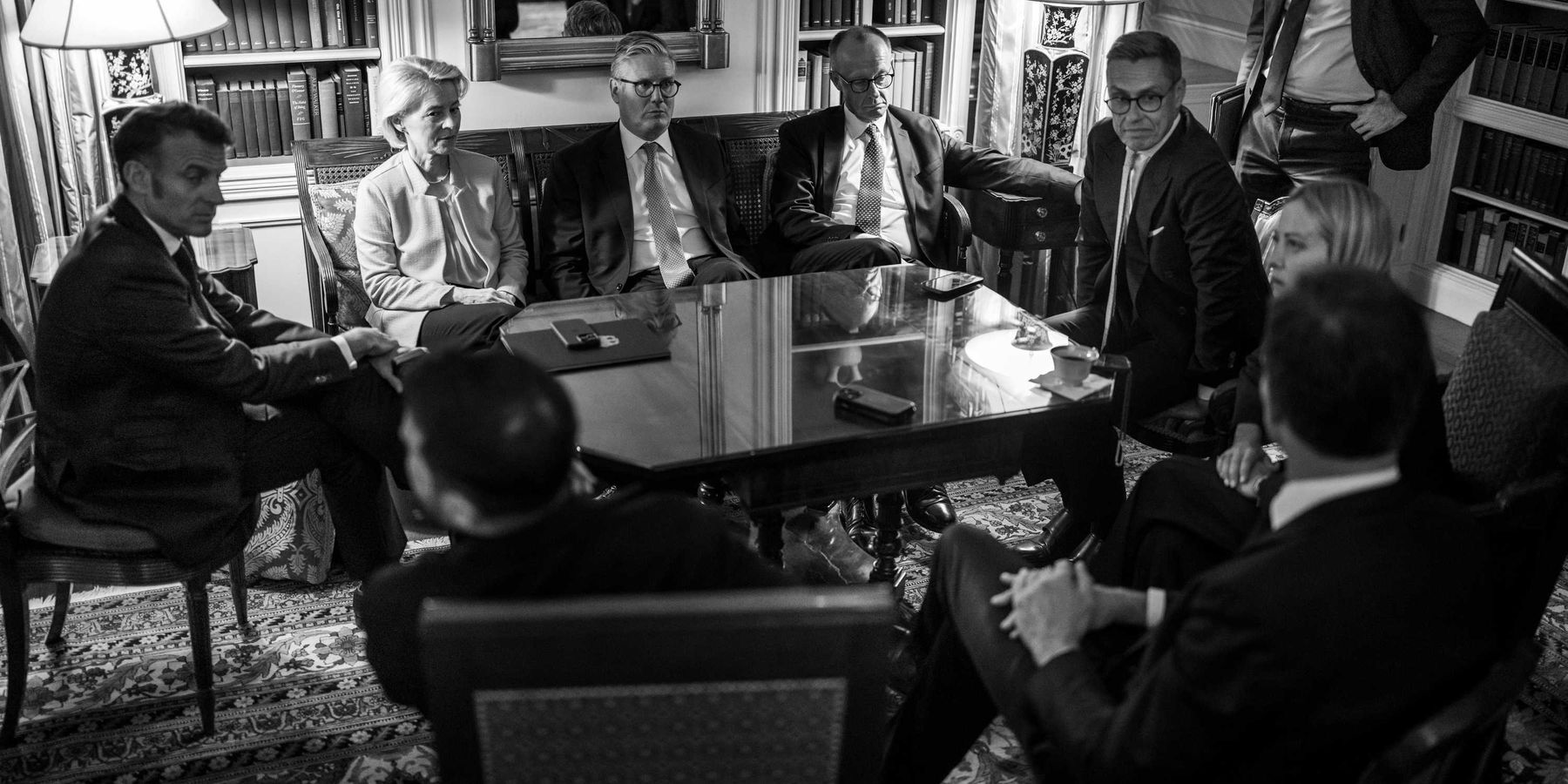Last month, Lithuania’s former foreign minister Gabrielius Landsbergis pithily diagnosed Europe as being stuck in a perpetual geopolitical Groundhog Day. Landsbergis is quite correct, though for reasons that would leave him unsmiling.
Europe’s problem is not its hesitance to confront Russia, one quality it enjoys in ample abundance, but its insistence on prioritizing short-term measures over a realistic strategy for ending the war in Ukraine.
This lack of a strategic vision has resulted in an “act first, think later” mentality, incentivized on the level of the European bureaucracy and the domestic politics of the EU’s biggest players. Nowhere is this better observed than on the perennial question of the several hundred billion euros’ worth of Russian assets held by Euroclear in Belgium.
European leaders have embarked on a renewed push to seize these assets, frozen at the start of Russia’s 2022 invasion of Ukraine, in a bid to find funding sources for Ukraine’s war effort.
The latest scheme along these lines seeks to provide Ukraine with a zero-interest €140 billion “reparation loan” from the frozen Russian assets. This loan will only be repaid if Russia agrees to provide sizable reparations to Ukraine.
There is little to say on the mechanics of this plan that has not already been raised by the Belgian government, which is being strong-armed by EU leadership, Germany, and several other European states into shouldering nearly all the risks without being provided any clear benefits.
"There's no free money. There are always consequences," said Belgian Prime Minister Bart De Wever. "I explained to my colleagues yesterday that I want their signature saying: 'If we take Putin's money, we use it, we're all going to be responsible if it goes wrong.’"
And things will indeed go wrong in that there is no plan for forcing repayment on Russia, which means the full risks and costs will functionally be assumed by European member states.
This plan’s only major innovation over prior schemes is its supposed workaround on the thorny issue of legality. Greenlighting outright seizure of Russia’s sovereign assets will undermine the credibility of European financial institutions and exercise a chilling effect on non-Western investors at a time when European countries are facing significant long-term macroeconomic pressures.
Proponents claim that the plan, because it is a loan subject to conditional Ukrainian repayment, technically does not dispute Russia’s sovereign claim over its assets. This bureaucratic workaround will be of ill solace to international investors. The complex machinery of global financial institutions runs on predictability and widespread agreement on a set of predetermined rules of the game about market relations and the property rights that underpin them.
If the EU bestows itself the ex nihilo right to commandeer someone else’s assets, something not established in international law or recognized by anyone else as a legitimate practice, it will be seen and treated as an expropriation in all but name with the full consequences to Europe’s reputation that this entails.
If the goal is to secure from Russia something that can reasonably be called Ukraine reparations, this can be accomplished in a much easier and safer way. There is a widespread recognition in Moscow that Russia is unlikely to get its European assets back. The real question is the terms on which the Kremlin will lose its money, and here, regardless of what some European leaders say, Russia’s legal ownership over these assets does give it leverage in determining their fate.
As my colleagues George Beebe and Anatol Lieven previously suggested, the West should open a negotiating cluster as part of the Ukraine peace talks to utilize the frozen assets toward a postwar international reconstruction fund for Ukraine. Depending on how talks progress, the West can offer to allocate part of the money to support people and territories that end up on Russia’s side of the postwar delimitation line.
An overseeing U.N. committee can ensure that funds used in this way go exclusively toward humanitarian, non-military projects.
The precise apportionment for Russian-controlled territories is itself subject to negotiations and will depend on what the rest of the peace deal looks like, but the West can and should argue that the lion’s share will go to Ukraine in exchange for Moscow’s agreement to unfreeze assets held by Western companies in Russia. This deal negates any concerns about financial blowback against Europe, as Russia would have to relinquish its sovereign claim over the frozen assets in order for them to be utilized toward the international reconstruction fund.
Linking these assets to a broader war termination framework rather than seizing them now strengthens the West’s negotiating position in determining the contours of a peace deal. It generates additional financial incentives, especially if coupled with a roadmap to sanctions relief, for Moscow to come to the negotiating table.
It’s not difficult to see why Europeans have revived asset seizure schemes after a string of failed initiatives along similar lines. Drying funds for Kyiv and gradual American disengagement from the war have stirred European leaders, whose goal is to sustain Ukraine’s war effort for as long as possible, to contemplate steps previously thought impossible or too risky.
It falls on the White House to convey to our allies that achieving a lasting settlement is in Western interests precisely because it frees Europe from the burdens of indefinitely financing this war, and to work on a continuous basis to secure European and Ukrainian consensus on a viable war termination framework.
- Russian asset seizure scheme will prolong war ›
- Seizing Russian assets: A feel good bill that will absolutely boomerang ›
- West confirms Ukraine billions funded by Russian assets ›
- Europe could be on the hook for $160 billion to keep Ukraine afloat | Responsible Statecraft ›
- EU avoids risky precedent in Ukraine aid deal ›
















